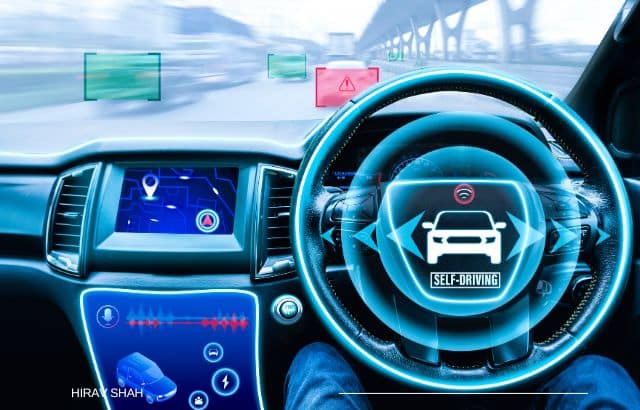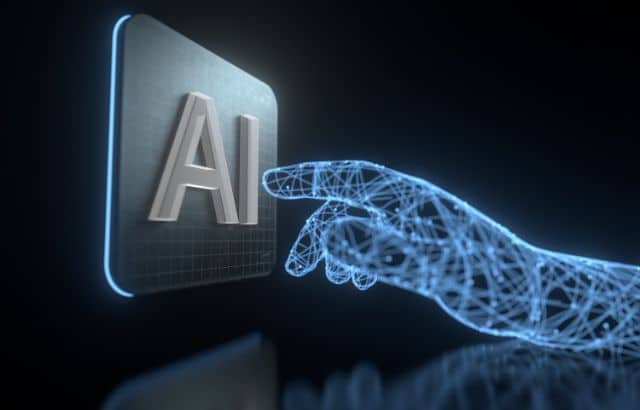Innovation is the driving force behind progress, and radical innovation takes things to the next level. These five examples of radical innovation are pushing the boundaries of what we thought was possible, and are shaping the future of technology and beyond. Get ready to have your mind blown!
Table of Contents
Self-driving cars.

Self-driving cars are one of the most talked-about examples of radical innovation in recent years. These vehicles use a combination of sensors, cameras, and artificial intelligence to navigate roads and highways without human intervention. Companies like Tesla, Google, and Uber are leading the charge in developing self-driving cars, which have the potential to revolutionize transportation and reduce accidents caused by human error. While there are still some regulatory and technical hurdles to overcome, self-driving cars are poised to become a common sight on our roads in the near future.
Augmented reality.

Augmented reality (AR) is another example of radical innovation that is changing the way we interact with technology. AR technology overlays digital information onto the real world, creating a blended experience that enhances our perception of reality. This technology has already been used in popular apps like Pokemon Go and Snapchat, but it has potential applications in fields like education, healthcare, and entertainment. For example, AR could be used to create immersive educational experiences that allow students to explore historical sites or scientific concepts in a more engaging way.
Artificial intelligence.

Artificial intelligence (AI) is one of the most exciting and rapidly developing areas of technology today. AI refers to the ability of machines to learn and perform tasks that would normally require human intelligence, such as recognizing speech, making decisions, and understanding natural language. AI is already being used in a wide range of applications, from self-driving cars to virtual assistants like Siri and Alexa. As AI technology continues to advance, it has the potential to revolutionize industries like healthcare, finance, and manufacturing, and to create new opportunities for innovation and growth.
3D printing.

3D printing is a revolutionary technology that allows for the creation of three-dimensional objects from digital designs. This technology has the potential to transform manufacturing and production processes, allowing for faster and more efficient production of complex parts and products. 3D printing is already being used in a variety of industries, from aerospace and automotive to healthcare and fashion. In the future, it could even be used to create entire buildings and structures, revolutionizing the construction industry.
Quantum computing.

Quantum computing is a type of computing that uses quantum-mechanical phenomena, such as superposition and entanglement, to perform operations on data. This technology has the potential to solve complex problems that are currently impossible for classical computers to solve, such as simulating complex chemical reactions or breaking encryption codes. Quantum computing could revolutionize industries such as finance, healthcare, and logistics, and could even lead to the development of new materials and drugs. However, there are still many challenges to overcome before quantum computing becomes a practical reality.
Here are some examples of radical innovations from around the world:
- Tesla – Electric cars and renewable energy solutions
- SpaceX – Private space exploration and transportation
- Amazon – Online marketplace and cloud computing
- Apple – iPhone and other innovative consumer electronics
- Google – Search engine, self-driving cars, and other innovative technologies
- Airbnb – Home-sharing platform
- Uber – Ride-hailing platform
- Netflix – Streaming video platform
- Alibaba – Chinese e-commerce giant
- Facebook – Social media platform
- WhatsApp – Instant messaging app
- WeChat – Chinese messaging app with social and payment features
- Duolingo – Free language learning platform
- Coursera – Online education platform
- 23andMe – Genetic testing and analysis
- Square – Mobile payment processing
- Stripe – Online payment processing for businesses
- Zoom – Video conferencing platform
- TikTok – Short-form video app
- Slack – Business communication and collaboration platform
- Salesforce – Cloud-based customer relationship management (CRM) software
- Waze – Crowd-sourced navigation app
- Spotify – Music streaming platform
- Snapchat – Social media platform with disappearing content
- Pinterest – Image sharing and discovery platform
- Instagram – Photo and video sharing app
- Microsoft – Innovative software and hardware solutions
- IBM – Technology and consulting company
- Boeing – Aerospace and defense company
- GE – Diversified industrial company
- Siemens – Global technology company
- Toyota – Leading car manufacturer
- Samsung – Consumer electronics, mobile phones, and home appliances
- Sony – Consumer electronics and entertainment company
- LG – Consumer electronics and home appliances company
- Philips – Health technology and lighting company
- Nest – Smart home automation company
- Fitbit – Wearable fitness technology company
- Peloton – Home fitness equipment and subscription service
- Impossible Foods – Plant-based meat substitutes
- Beyond Meat – Plant-based meat substitutes
- Moderna – Innovative biotech company focused on mRNA-based vaccines and therapies
- CRISPR Therapeutics – Gene editing technology company
- Blue Origin – Space exploration and transportation
- Virgin Galactic – Space tourism and exploration
- DeepMind – Artificial intelligence research and development
- OpenAI – AI research and development
- Boston Dynamics – Robotics company
- Waymo – Autonomous driving technology company
- Didi Chuxing – Chinese ride-hailing platform
- Grab – Southeast Asian ride-hailing and delivery platform
- Meituan Dianping – Chinese food delivery and lifestyle services platform
- Baidu – Chinese internet search engine and AI company
- Tencent – Chinese technology and gaming company
- DJI – Chinese drone manufacturer
- Xiaomi – Chinese consumer electronics company
- Rakuten – Japanese e-commerce and online services company
- SoftBank – Japanese multinational conglomerate holding company
- Alibaba – Chinese e-commerce giant
- Ant Financial – Chinese fintech company and parent company of Alipay.
Radical Innovations from India That Are Changing the World
1. Aadhaar: India’s biometric identification system that assigns a unique 12-digit number to each citizen, making it easier to access government services and benefits.
2. UPI: Unified Payments Interface that allows instant money transfers between bank accounts using a mobile phone.
3. BHIM: Bharat Interface for Money, a mobile payment app that allows users to send and receive money using their mobile number or UPI ID.
4. Swachh Bharat Abhiyan: A nationwide cleanliness campaign aimed at making India clean and free of open defecation.
5. Digital India: A government initiative to transform India into a digitally empowered society and knowledge economy.
6. Make in India: A government initiative to encourage domestic and foreign companies to manufacture their products in India.
7. Ayushman Bharat: A healthcare scheme that provides free health insurance to over 100 million families in India.
8. Solar Power: India is the world’s third-largest producer of solar power, with plans to generate 100 GW of solar power by 2022.
9. Electric Vehicles: India has set a target of having only electric vehicles on its roads by 2030.
10. Jio: A telecom company that disrupted the Indian telecom market by offering free voice calls and cheap data plans.
11. E-commerce: India’s e-commerce market is one of the fastest-growing in the world, with companies like Flipkart and Amazon India leading the way.
12. Space Technology: India has made significant strides in space technology, with successful missions to Mars and the Moon, and plans for a manned space mission in the near future.
Here are 60 radical innovations from India:
- Chai Point – Automated tea dispensers
- Reva Electric Car – India’s first electric car
- Flipkart – Online marketplace
- ISRO – Space exploration
- Ujala – Energy-efficient lighting scheme
- Aadhaar – Biometric identification system
- Jio – Low-cost 4G internet
- Oyo Rooms – Budget hotel chain
- InMobi – Mobile advertising
- Zomato – Online food delivery platform
- BYJU’s – Online education platform
- RedBus – Online bus ticket booking platform
- Paytm – Digital payments and e-wallets
- FreeCharge – Mobile recharge and bill payment platform
- Swiggy – Online food ordering and delivery platform
- Quikr – Online classifieds platform
- Practo – Online doctor appointment booking platform
- Olacabs – Ride-hailing platform
- Ather Energy – Electric scooter manufacturer
- Mahindra e2o – Electric car
- Suki – AI-powered voice assistant
- Project Loon – Internet-beaming balloons
- Emflux Motors – Electric sports bike manufacturer
- Khethworks – Solar-powered irrigation system
- Milk Mantra – Milk and dairy products company
- EzeTap – Mobile point-of-sale (POS) solution
- FreshMenu – Online food ordering and delivery platform
- Medlife – Online pharmacy platform
- Swajal – Smart water ATM
- m.Paani – Digital loyalty program for small retailers
- Smart Joules – Energy efficiency company
- Nepra – Solar-powered electric bicycle
- Pindrop – Voice security and authentication
- Ola Electric – Electric scooter and charging infrastructure
- Saathi – Biodegradable sanitary pads
- Bempu – Infant temperature monitoring bracelet
- AgroStar – Online agriculture marketplace
- Blubirch – Refurbished electronics marketplace
- Ecozen Solutions – Solar-powered cold storage solutions for agriculture
- IOTomation – IoT-based building automation solutions
- GreyOrange – Robotics and automation solutions for logistics and warehousing
- Kheyti – Affordable greenhouse technology for small farmers
- Reap Benefit – Citizen-driven environmental solutions
- Solaron – Solar-powered water pumps
- Svadha – Biodegradable cutlery and tableware
- VayuGrid – Air pollution monitoring and management
- YCook – Smart kitchen appliances
- Biosense Technologies – Affordable medical diagnostics
- BleeTech Innovations – Assistive technology for visually impaired
- Bodhi Health Education – Digital healthcare education
- Carbon Clean Solutions – Carbon capture and utilization technology
- Ecolibrium Energy – Energy management and analytics solutions
- Flipcarbon – Online carbon credit marketplace
- GramPower – Smart microgrid technology
- Lightmetrics – AI-powered energy auditing
- Log9 Materials – Graphene-based air purification and water treatment
- Phy – Natural and sustainable personal care products
- Scapic – AR and VR platform for e-commerce
- Stellapps – Dairy supply chain digitization
- String Bio – Biotechnology for sustainable protein production.










